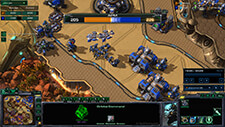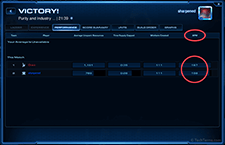APM
Stands for "Actions Per Minute." APM is a video game metric that measures how many actions a player performs per minute. For example, if a player averages one action each second, his or her APM is 60. If a player averages 2.5 actions per second, he or she has an APM of 150.
APM applies to several different games, but it is most beneficial in real-time strategy (RTS) games. For example, games like StarCraft and Age of Empires require players to multitask in real-time. A player with a high APM will be able to accomplish more in a given time than a player with a lower APM. This provides a significant advantage when competing against players online or in eSports competitions.
What is an "Action?"
An action is a single mouse click or keystroke entered during gameplay. For example, clicking the cursor on a unit, pressing "A" to attack, then clicking the cursor on the attack location is three actions. Mouse movements are generally not considered actions.
While APM is an important metric in RTS gaming, it is not the only ability that matters. Other important skills include:
- Strategy - understanding the game and creating effective methods to win
- Decision-making - knowing when to defend, when to attack, and how to adapt in the middle of a game
- Micro - controlling individual units, especially during combat
- Macro - continuously making units and structures, and using resources efficiently
APM is most important in RTS games, but it can apply to other video games as well. For example, it helps to have a high APM in first-person shooter (FPS) games like Call of Duty and Overwatch. Being "fast" is also advantageous in fighting games like Street Fighter and Super Smash Bros. However, accuracy is often more critical than speed in these games, so APM is not as important.
NOTE: APM may be inflated by redundant actions, such as repeatedly pressing a key or mouse button. An example is clicking is right-clicking the same location several times in a row when only one click is needed. Some games include an algorithm that calculates "effective APM" or EPM, by removing redundant actions.
 Test Your Knowledge
Test Your Knowledge
